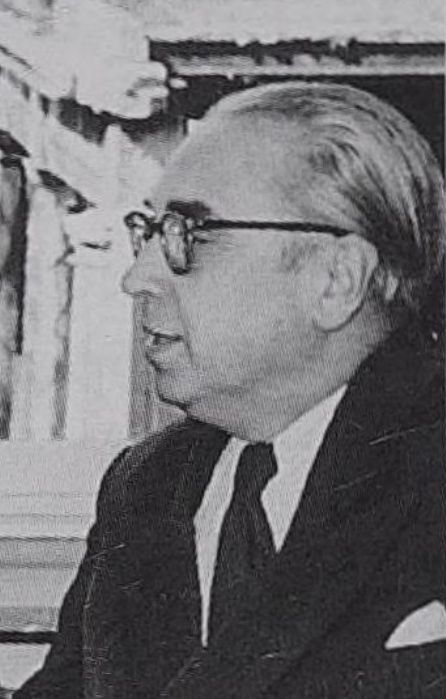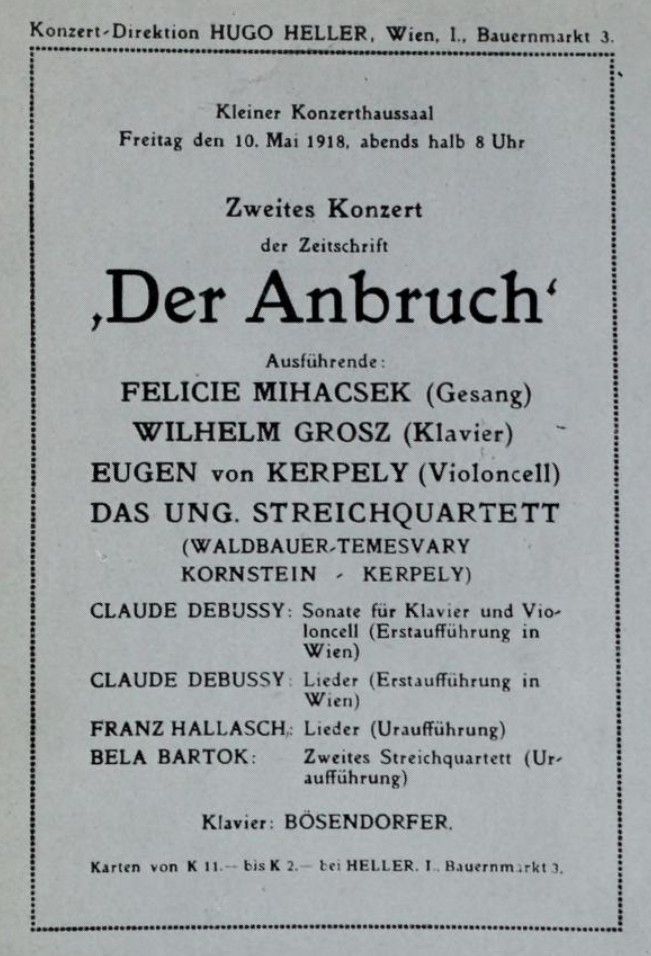Franz Hallasch
Franz Hallasch was born on 25 September 1893 in Vienna (Austria). He later studied under Franz Schreker (composition) at the Akademie der Tonkunst in his hometown. Already during his study days Franz Hallasch was successful with his compositions and won the Zusner Prize of the Gesellschaft der Musikfreunde in Wien in 1914/15 ahead of Wilhelm Grosz. In 1916 the Philharmonic Choir (founded by Schreker in 1907) commissioned a work by Franz Henschel which was performed a year later. In 1918 four songs by Franz Hallasch were premiered at the Konzerthaus by Felicie Hüni-Mihacsek and Wilhelm Grosz (together with works by Debussy and Bartok). So first promising steps as a composer, especially as a lied composer were made.
To earn a living Franz Hallasch moved to Munich and worked as a repetiteur at the Munich State Opera since 1920. In the following years he focused more and more on a career as a piano accompanist than being a composer and became one of the leading performers in Germany. He gave concerts and toured with such renowned singers like Georg Hann, Heinrich Rehkemper, Adele Kern, Peter Anders, Margarete Teschemacher, Marcel Wittrisch, Richard Holm, Laura Knapek, Julius Patzak or Ivar Andresen. Some of these performances were even recorded on record. The appreciation of his mastery culminated in the dubious honour of being part of the Gottbegnadeten list of the Nazi regime.
Beside his work at the Munich State Opera Franz Hallasch also worked as a singing teacher. Some of his most notable students were Karl Liebl, Hubert Norville, Myron Taylor or Helen Snelling.
Franz Hallasch remained at Munich State Opera until 1952, and over the decades became the kapellmeister, head of preparation and personal assistant to the conductors Clemens Krauss and Georg Solti. In 1952 he followed Georg Solti to the Frankfurt Opera and remained until 1961.
Curiously - regarding the reputation and historical importance of Franz Hallasch - I found no information when he passed away.
The work catalogue of Franz Hallasch is quite small. During his student days he composed a violin sonata (1914), two songs on words by Vincenz Zusner, "Der 23. Psalm", for choir, orchestra and organ (1916) and five songs on words by Rilke (1918). During his early days at the Munich State Opera he made a few arrangements or own compositions for plays: music for "Der Lügenbeutel" by Goldoni or "Der stehengebliebene Wachtposten" after Schubert.
Five Rilke songs
In my possession are five autograph manuscripts of songs by Franz Hallasch. These songs for voice and piano were composed in 1918 and all five set poems by Rainer Maria Rilke to music. The songs are:
- Liebeslied
- Das war der Tag der weißen Chrysanthemen
- Einen Maitag mit dir beisammen zu sein
- Im Frühling oder im Traum
- Opfer
The first four of these songs were premiered on 10 May 1918 at the Wiener Konzerthaus by Felicie Hüni-Mihacsek and Wilhelm Grosz. The concert was organised by Hugo Heller and the songs by Franz Hallasch were paired with several works by Claude Debussy and the first Austrian performance of the String quartet No.2 by Bela Bartok. A critic of that time wrote (the additional Bartok critic is for historical context and personal amusement):
"Franz Hallasch proved himself to be a serious musician who goes his own way in his four songs, even if his characteristic still lies in his provocatively deliberate avoidance of any melodic lines. There is, unfortunately, just as little good to be said about Béla Bartók's second String Quartet, which the Hungarian String Quartet performed with courageous self-denial, as there was about the first."

